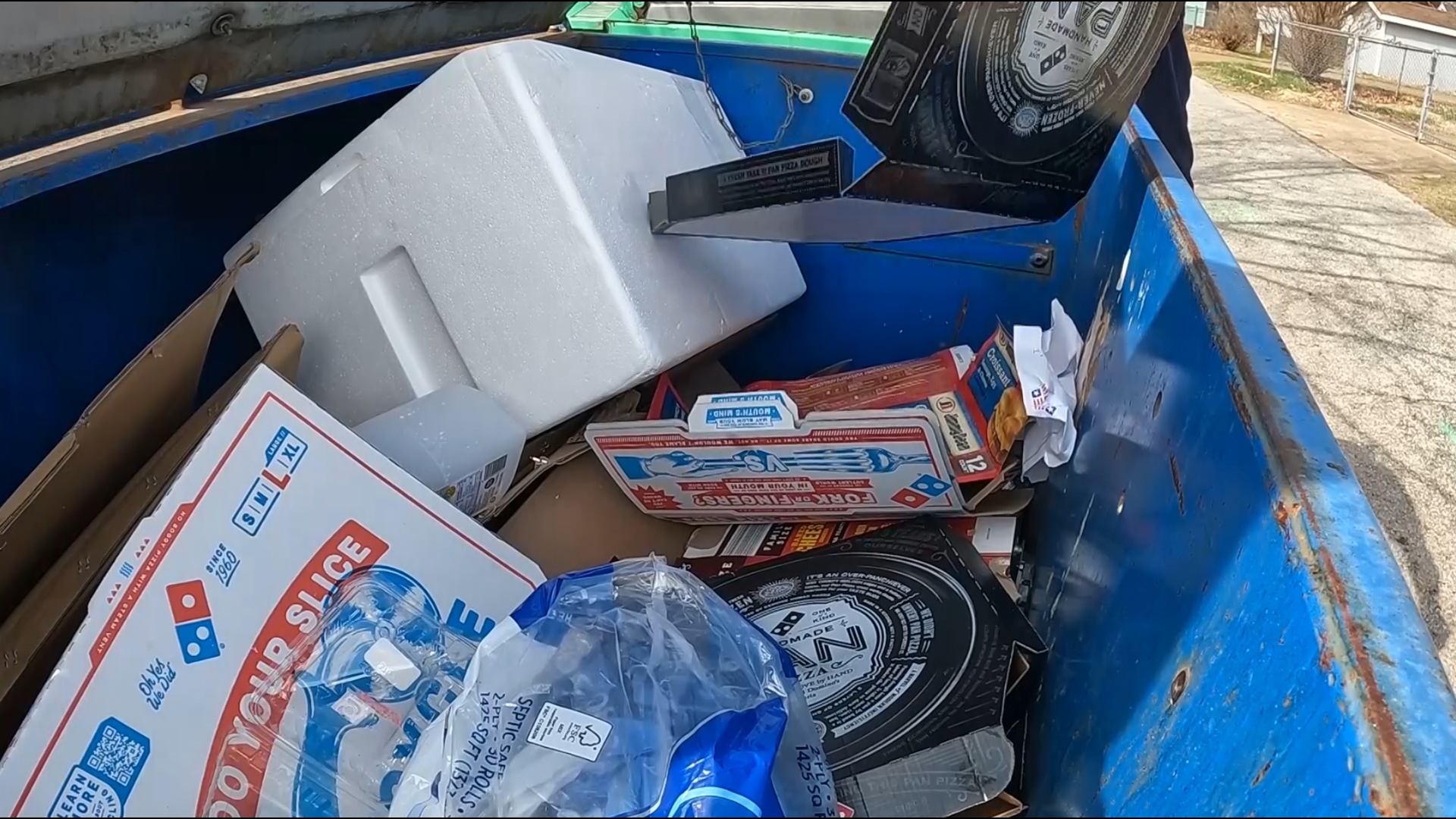ST. LOUIS — In St. Louis, the struggle to recycle correctly costs the city and its residents. A new pilot program led by Saint Louis University researcher Orhun Aydin aims to change that. At the heart of this initiative are innovative sensors that may revolutionize how we manage our recycling.
The I-Team discovered only three in 10 of the city’s alley recycling bins actually get recycled. The rest head to landfills. It's a reality in line with national rates.
Aydin said the new sensors will be game-changers.
“...To really scale up and increase the recycling rates," said Aydin, assistant professor in earth and atmospheric science at SLU's School for Science and Engineering.
Aydin said the city is partnering with his pilot program. He is also partnering with earthday365, a St. Louis nonprofit focused on reducing waste.
At $50 each, the new sensors are being deployed in 100 recycling bins across south St. Louis. Within a few years, Aydin hopes they’ll be citywide. They’re designed to track what’s being thrown out, measuring everything from gas emissions to humidity and even capturing images of items as they’re discarded.
“It really creates transparency," Aydin said.
The goal is to pinpoint where recycling is being done incorrectly, with contaminants like liquids and plastic bags often ruining entire truckloads.
“I think that with this transparency we will be able to make better decisions," he said.
He said it's all while using newly collected data to help educate.
“We are going to be going and holding recycling events in communities in parks," Aydin said.
He said he believes the technology will also help overworked city employees plan more efficient routes.
“What are some optimal collection routes to allocate these very limited driver resources effectively?” Aydin said.
City of St. Louis spokesperson Rasmus Jorgensen share the following statement in an email: “The City of St. Louis is excited to partner with St. Louis University and Dr. Orhun Aydin to improve the recycling process in the City, which will benefit residents and the environment. We want to spread the message that recycling is most efficient when non-recyclable trash, such as plastic grocery bags or dirty pizza boxes, never enters the recycling stream."
But while this new technological initiative offers hope, our investigation reveals serious flaws in current recycling practices in St. Louis. Viewers have sent the I-Team video evidence.
A video from the Shaw neighborhood from late last year shows a city driver combining recycling and trash.
Other videos from the South Hampton and Dutchtown neighborhoods show the same thing.
Residents tell us they often see the comingling of trash and recycling happening in their neighborhoods.
A city spokesperson told us just four workers are responsible for inspecting thousands of alley recycling bins citywide. They claim these workers inform drivers when to send contaminated bins to landfills. A spokesperson also told us in an email: "To prevent contaminated recycling bins from causing further contamination, city refuse drivers will combine recycling and trash when it is clear that a recycling bin has been contaminated with trash that cannot be recycled. Combining contaminated recycling with trash as it is picked up means that this work does not have to be done at the recycling facility, which would be costly and risk further contamination.”
Residents we spoke with are not convinced city workers are always sending recycling to landfills only when they're instructed to and when there's contamination. Aydin said he believes any issues stem from worker shortages and the new technology will help.
"They are a step in the right direction," said Aydin.
The I-Team requested official records to verify if drivers are permitted to mix recycling with trash. The city has yet to provide any documentation. Our open records request, filed in April, remains unanswered. Meanwhile, residents hope the new technology could mark a turning point for St. Louis’ recycling efforts, bringing much-needed accountability and transparency.
The city’s delay in providing records reflecting recycling protocols comes as St. Louis constitutional lawyer Elad Gross has been suing the City of St. Louis over the alleged failure to follow the law’s requirement to either produce records within three business days or provide information about the earliest date and time at which records will be available.
If you've got a tip for Paula, leave a voice message at 314-444-5231 or email her at pvasan@ksdk.com.
To watch 5 On Your Side broadcasts or reports 24/7, 5 On Your Side is always streaming on 5+. Download for free on Roku, Amazon Fire TV or the Apple TV App Store.

